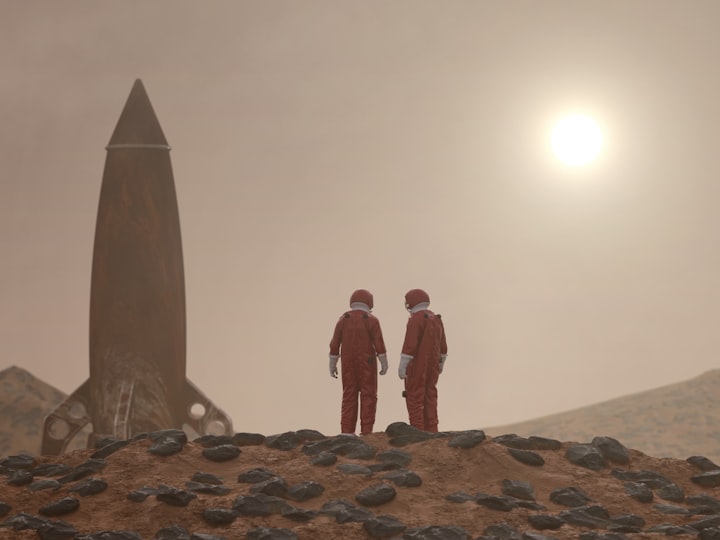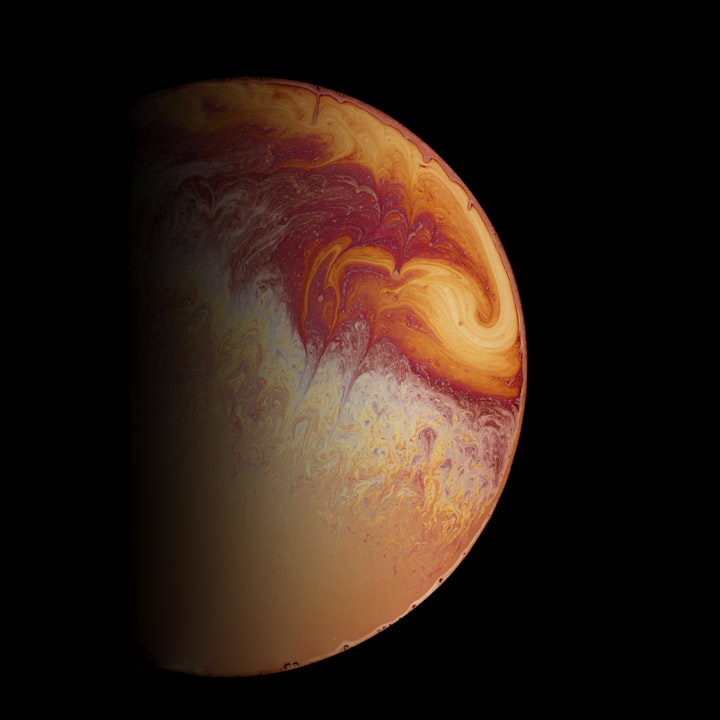Is Colonizing Mars Even Possible?
Unraveling the Red Planet's Potential

For generations, the idea of colonizing other planets has captured the human imagination. Among these extraterrestrial dreams, Mars stands out as one of the most compelling candidates for potential colonization. The Red Planet, with its reddish hue and proximity to Earth, has been a subject of fascination for astronomers, scientists, and science-fiction writers alike. But is colonizing Mars even possible? Can humanity truly become an interplanetary species and establish a sustainable settlement on the distant planet?
In this article, we will delve into the scientific, technological, ethical, and societal aspects of colonizing Mars. We will explore the challenges and possibilities, examine the potential benefits for Earth, consider the role of robotics and automation, discuss the ethical implications of space colonization, and look at how Mars has been portrayed in popular culture. By the end of this journey, we hope to shed light on the feasibility of colonizing the Red Planet and the potential implications of such a daring endeavor.
Mars: The Red Planet
Mars, also known as the Red Planet, is the fourth planet from the Sun in our solar system. Named after the Roman god of war, its reddish appearance is due to iron oxide, or rust, covering much of its surface. Mars has a thin atmosphere primarily composed of carbon dioxide, and its terrain features a diverse array of geological formations, including vast plains, deep canyons, and towering volcanoes.
Scientists have been fascinated by Mars for centuries, and observations through telescopes and space missions have provided valuable data about its surface, atmosphere, and potential for supporting life. The allure of the Red Planet lies not only in its proximity to Earth but also in its potential as a stepping stone for human exploration of the cosmos.
A Brief History of Mars Exploration
The journey of exploring Mars began centuries ago with telescopic observations. In the late 19th and early 20th centuries, astronomers like Giovanni Schiaparelli and Percival Lowell made observations of mysterious "canals" on Mars, sparking speculation about possible intelligent life on the planet. However, later missions and more detailed observations revealed that these canals were an optical illusion.
The modern era of Mars exploration began with flyby and orbiter missions. The Mariner program, launched by NASA in the early 1960s, provided the first close-up images of the Martian surface. Subsequent missions, like Viking, Pathfinder, and Phoenix, added to our knowledge of Mars, its geology, and its potential habitability.
In recent years, rovers like Spirit, Opportunity, Curiosity, and Perseverance have conducted on-the-ground exploration, studying the planet's geology and climate and searching for signs of past life. These missions have revolutionized our understanding of Mars and paved the way for future exploration.
The Challenges of Colonization
While Mars offers tantalizing opportunities for exploration and discovery, colonizing the Red Planet comes with formidable challenges. Perhaps the most significant obstacle is the distance between Earth and Mars. At its closest approach, Mars is approximately 54.6 million kilometers (33.9 million miles) away from Earth. This distance poses significant logistical and navigational challenges for crewed missions.
The journey to Mars would take several months, and during this time, astronauts would be exposed to cosmic radiation, microgravity, and isolation. Overcoming these physical and psychological challenges is crucial for the success of any Mars colonization mission.
Once on Mars, colonists would face an inhospitable environment. The planet's thin atmosphere offers little protection from harmful cosmic rays and solar radiation. The surface is dry and arid, with extreme temperature fluctuations. Dust storms can also pose a threat to equipment and human health.
Sustainability is another major challenge. Establishing a self-sustaining colony would require developing efficient life support systems, recycling resources, and generating power through renewable sources. The dependency on Earth for essential supplies would need to be minimized to ensure the long-term viability of the colony.
The Potential for Terraforming
Terraforming, the process of altering a planet's environment to make it more Earth-like and habitable for humans, is an ambitious concept that has been proposed for Mars. The idea involves releasing greenhouse gases into the atmosphere to trap heat and increase surface temperatures, thereby melting ice and creating liquid water. This, in turn, could lead to the formation of oceans and the possibility of supporting plant and animal life.
While the idea of terraforming Mars is enticing, it is also highly complex and uncertain. It would require an unprecedented level of planetary engineering and would likely take centuries, if not millennia, to achieve. Additionally, the potential unintended consequences and ethical considerations of altering an entire planet raise significant concerns.
Space Travel and Mars
The journey to Mars is a monumental feat of engineering and ingenuity. The development of spacecraft capable of carrying humans safely to and from Mars is a primary focus of space agencies and private companies. Propulsion systems, life support technology, and radiation shielding are just some of the critical components that must be perfected before crewed missions to Mars can become a reality.
One proposed approach to interplanetary travel is the concept of "Interplanetary Transport System" proposed by SpaceX. This system aims to use reusable rockets, like the Starship, to transport both humans and cargo between Earth and Mars. The goal is to make space travel more affordable and accessible, enabling sustained missions to Mars and beyond.
Sustainability on Mars
Sustainability is a key consideration for any Martian colony. Since resupply missions from Earth would be infrequent and costly, colonists must become self-sufficient and recycle as much as possible. Methods for growing food, producing oxygen, and generating energy would need to be developed to ensure a continuous supply of essential resources.
One potential source of sustenance on Mars is the production of food through hydroponics or aeroponics. These methods would allow crops to be grown without soil, using water and nutrients to nourish the plants. Additionally, technologies like in-situ resource utilization (ISRU) could extract water from the Martian soil or atmosphere, providing a vital resource for the colony.
The Role of Robotics in Colonization
Before humans arrive on Mars, robots will play a crucial role in laying the groundwork for colonization. Robotic missions can conduct extensive surveys of potential landing sites, test technologies, and build necessary infrastructure. Robots can also assist in extracting resources and conducting scientific research.
Rovers like Curiosity and Perseverance have demonstrated the capabilities of robotic exploration on Mars. Future missions may involve more advanced robots capable of autonomous decision-making and construction tasks. The use of robots can reduce risks and pave the way for human settlers.
Mars Colonization and International Law
The colonization of Mars raises complex legal and ethical questions. Unlike Antarctica, which is governed by the Antarctic Treaty System and designated as a continent for peace and scientific cooperation, Mars falls under no such international legal framework. The Outer Space Treaty of 1967 prohibits the militarization of space and establishes space as a "province of all mankind." However, it does not address issues specific to planetary colonization.
The allocation of resources, land ownership, and potential territorial claims on Mars present significant challenges. International collaboration and the establishment of new legal frameworks would be necessary to ensure peaceful and cooperative exploration and colonization of the Red Planet.
Ethical Considerations
The pursuit of space exploration and colonization comes with ethical dilemmas. One of the primary concerns is the potential impact on any existing Martian life, should it exist. Contamination from Earth could jeopardize the study of native organisms and hinder our understanding of Martian evolution.
Additionally, the impact on Earth's environment and resources must be considered. The immense resources required for Mars colonization could divert attention and funding from pressing issues on our home planet, such as climate change and poverty.
Is Mars a Viable Backup Plan for Earth?
One argument often put forth in favor of Mars colonization is its potential as a "backup" plan for humanity. Proponents argue that establishing a colony on Mars could safeguard the human species in the event of catastrophic events on Earth, such as a large asteroid impact or a global pandemic.
While this idea holds some merit, it also raises questions about the practicality and cost-effectiveness of such a plan. The challenges of colonizing Mars are vast, and the resources required for a self-sustaining colony would be immense. Critics argue that efforts should instead be focused on addressing and mitigating existential threats to Earth rather than seeking refuge on another planet.
Scientific Discoveries on Mars
Mars exploration has yielded numerous scientific discoveries. From evidence of ancient river valleys and lakebeds to the detection of methane in the atmosphere, each mission has provided valuable insights into the planet's history and potential for past habitability.
One of the most significant discoveries came with the detection of water ice beneath the Martian surface. This discovery has implications for future colonization efforts, as water is essential for sustaining life and generating resources.
Mars and the Search for Life
The search for life on Mars is one of the driving forces behind exploration efforts. While no direct evidence of past or present life has been found, the discovery of potential biosignatures, such as methane, has sparked excitement and speculation.
Mars possesses some of the conditions necessary for life, including liquid water in the past and the presence of organic molecules. However, confirming the existence of Martian life remains a challenging task. Future missions, equipped with advanced scientific instruments, will continue the search for signs of life.
The Economic Impact of Colonization
Colonizing Mars is an endeavor with significant economic implications. The cost of developing and launching crewed missions, building habitats, and sustaining a Martian colony would be astronomical.
However, the exploration and colonization of Mars also present economic opportunities. The development of cutting-edge technologies, space mining for valuable resources, and the potential for interplanetary trade could create new industries and stimulate economic growth.
Psychological Challenges
Living on Mars would present unique psychological challenges for colonists. The isolation, confinement, and distance from loved ones and familiar surroundings could lead to psychological stress and other mental health issues.
Space agencies and researchers are actively studying the psychological aspects of long-duration space travel to better understand and prepare for the mental well-being of future astronauts.
Mars and Space Tourism
While colonization is a long-term goal, the prospect of space tourism to Mars is a possibility in the nearer future. Private companies like SpaceX have expressed interest in offering commercial space travel experiences, including trips to Mars.
Space tourism would not only offer a once-in-a-lifetime adventure for the wealthy but could also generate revenue to fund further space exploration missions.
Overcoming Technological Barriers
The challenges of Mars colonization require groundbreaking technological solutions. From radiation shielding to life support systems, from propulsion technology to sustainable habitat design, numerous areas of technology must be advanced to support human settlement on Mars.
Continuous innovation and collaboration between governments, private companies, and research institutions are crucial for overcoming these barriers.
The Role of Public and Private Sectors
Mars exploration and colonization have traditionally been the domain of government space agencies. However, in recent years, private companies have entered the space race, significantly impacting the landscape of space exploration.
Public-private partnerships have emerged, combining the resources and expertise of both sectors. Companies like SpaceX, Blue Origin, and others are driving innovation and reducing the cost of space travel, making it more accessible for both scientific and commercial purposes.
Mars: A Potential Interplanetary Hub
Beyond its potential as a colony, Mars could serve as a stepping stone for future interplanetary missions. The planet's lower gravity and resources could facilitate further exploration of the outer solar system, including the moons of Jupiter and Saturn.
Mars could become a hub for interplanetary travel and resource utilization, supporting a thriving space-faring civilization.
The Future of Mars Colonization
Looking ahead, the future of Mars colonization is uncertain, but the prospects are undeniably exciting. The success of current and upcoming missions will play a significant role in shaping the trajectory of human exploration of the Red Planet.
As technologies advance, and our understanding of Mars grows, the dream of colonizing another planet may inch closer to reality.
Potential Benefits for Earth
Beyond its impact on space exploration, Mars colonization could have indirect benefits for Earth. The technologies developed for sustaining life on Mars could find applications in sustainable living on our home planet.
Additionally, the spirit of exploration and the pursuit of knowledge from Mars missions could inspire future generations of scientists, engineers, and explorers.
Mars Colonization in Popular Culture
Mars has been a recurring theme in popular culture for over a century. From classic science fiction novels like H.G. Wells' "War of the Worlds" to blockbuster movies like "The Martian," the Red Planet has captured the imagination of storytellers and audiences alike.
These depictions have shaped public perception and contributed to the allure of Mars exploration and colonization.
Conclusion
Colonizing Mars is a visionary goal that has captivated humanity's imagination for centuries. While challenges and uncertainties remain, the progress made in space exploration and technological advancements make the dream of colonizing the Red Planet seem more attainable than ever before.
However, it is essential to approach this endeavor with careful consideration, taking into account ethical, environmental, and societal implications. Mars colonization is a monumental undertaking that requires collaboration, innovation, and the collective efforts of governments, private companies, and the global scientific community.
As we unravel the Red Planet's potential, let us remember that the pursuit of space exploration is not just about reaching new frontiers; it is also about gaining a deeper understanding of our own planet, the cosmos, and our place in the universe.
About the Creator
Tracey te Braake
I love writing and I want to bring joy to my readers as they lose themselves in my words.






Comments
There are no comments for this story
Be the first to respond and start the conversation.